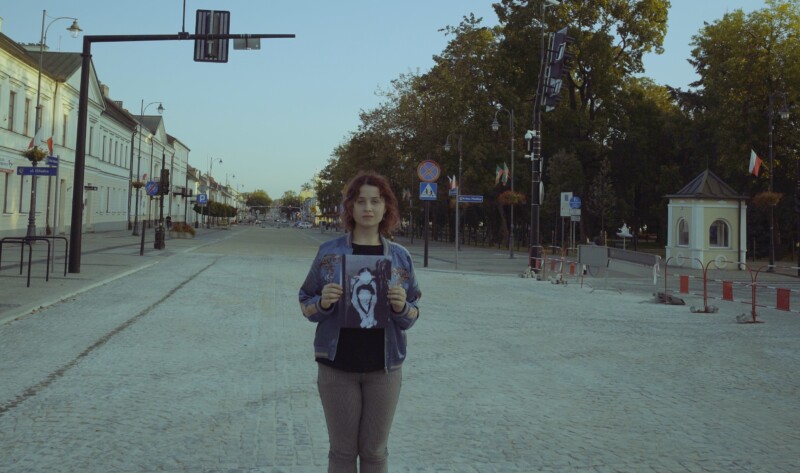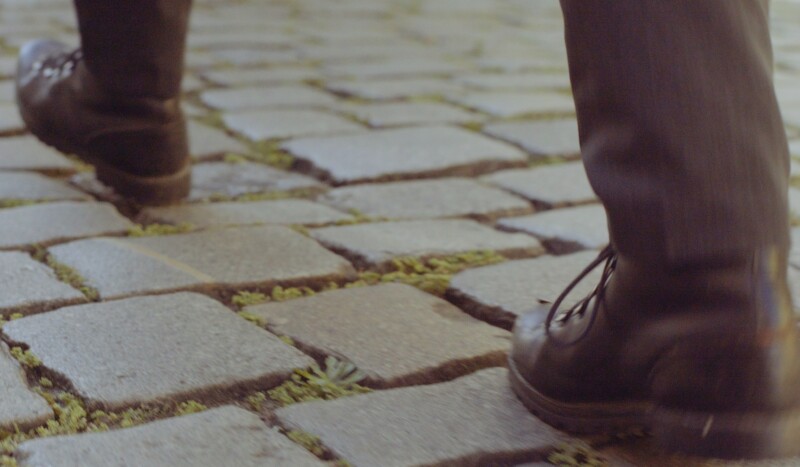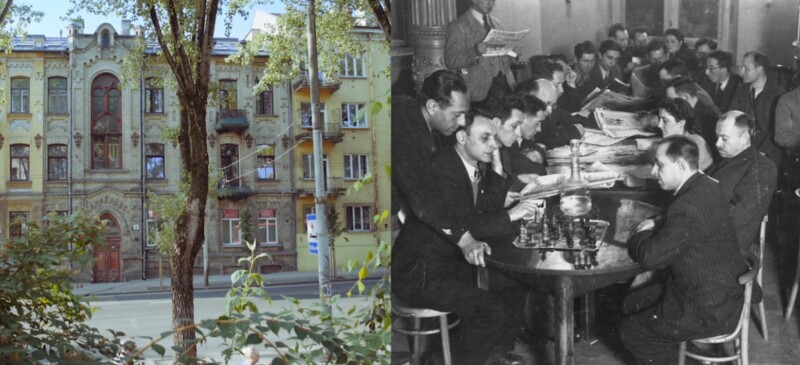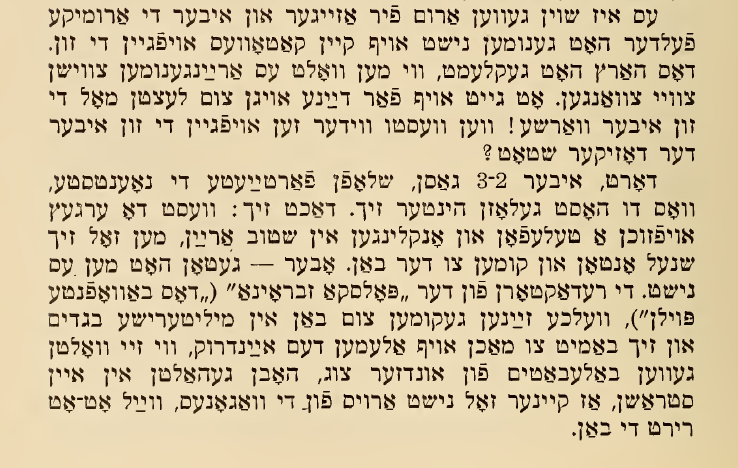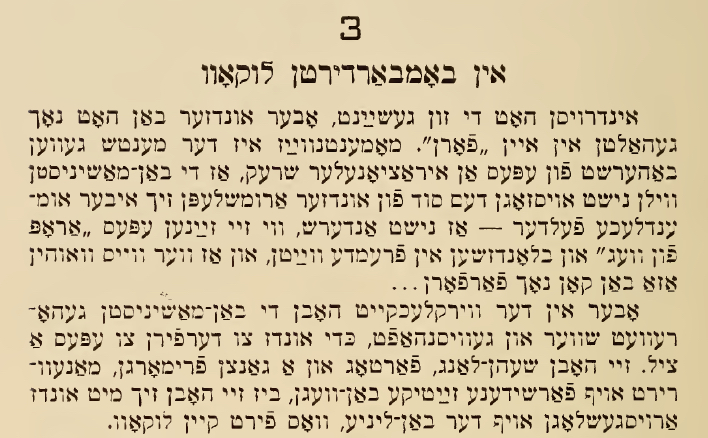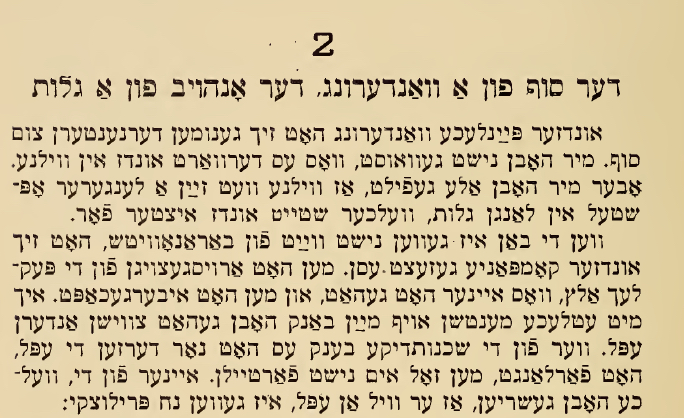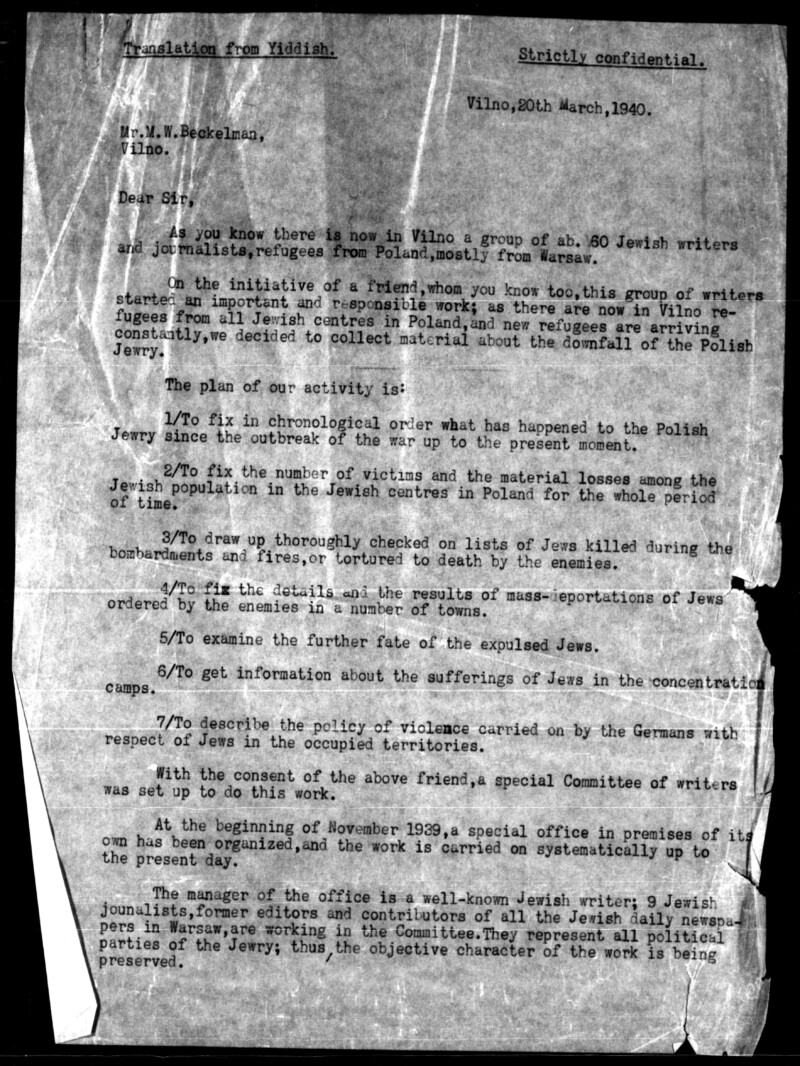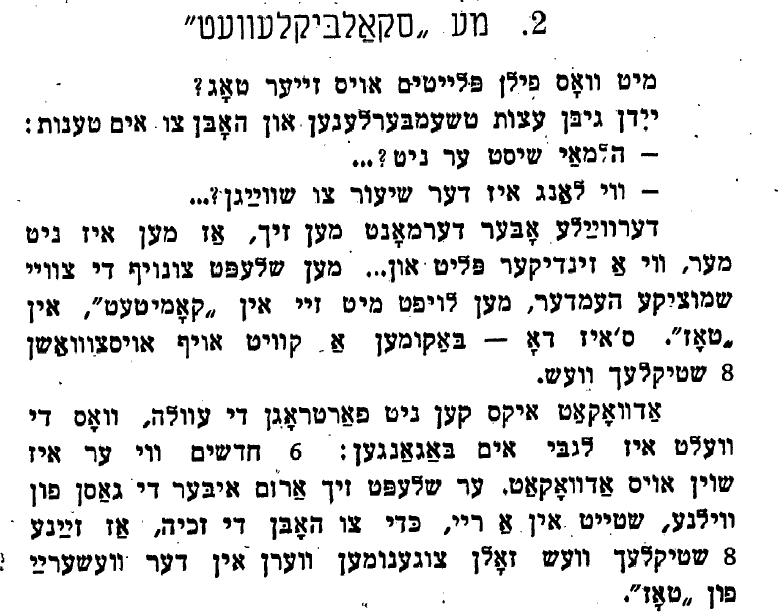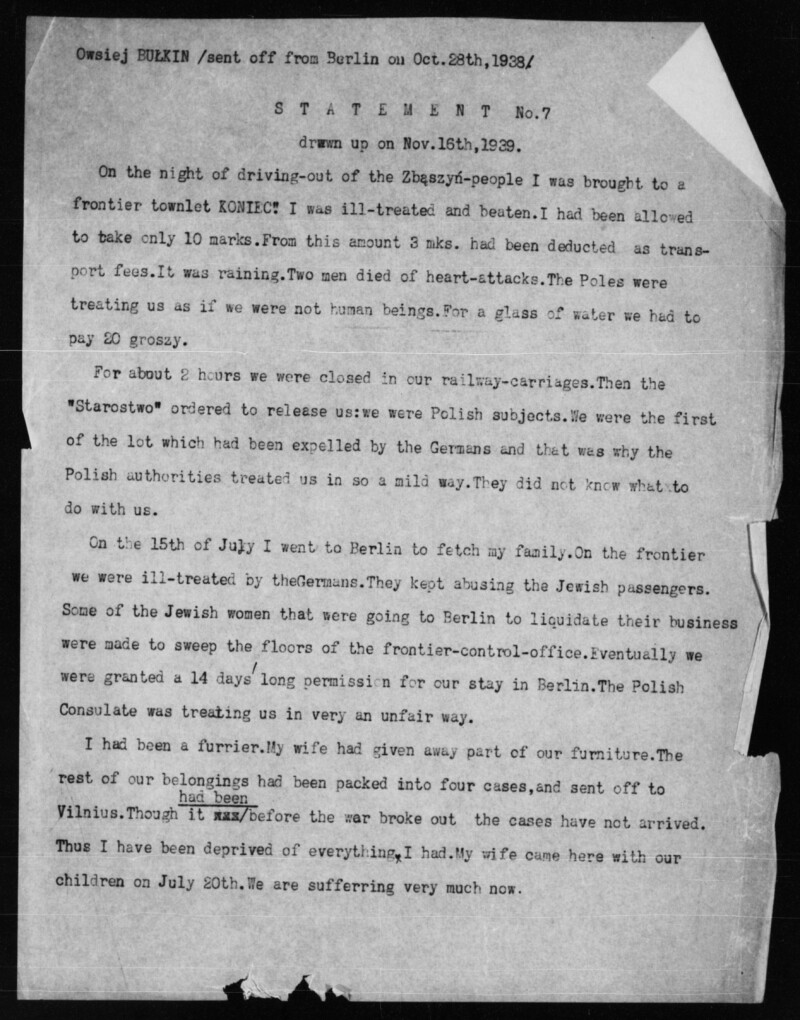In the night between the 5th and the 6th of September 1939, the most important press reporters were evacuated from Warsaw on a journalist train organized by the Polish government. Among the journalists were Polish-Jewish press reporters. One of them was Pinkhas Shvarts (1902-1963) , a writer and journalist, an active member of The General Union of Jewish Workers (Bund) and brother of the famous chronicler of the Shoah in Lithuania, Herman Kruk. Another was Zusman Segalovitsh (1884-1949) , who counted as one of the most popular Yiddish writers in interwar Poland. Their record of the turbulent journey into the unknown serves us as a compass. The flight memories Shvarts and Segalovitsh are also part of the We Refugees Archive in written form.
Noyekh Prilutski (1882–1941) was also a passenger on the so-called journalist train. He was a Polish Jewish politican of the Folkspartey , pioneer of Yiddish Studies, journalist and until 1939 publisher of the most important Yiddish newspaper Der moment in Warsaw. When the journalist train reached its destination Vilnius in October after a long and dangerous ride, the exiled Jewish refugees did not hesitate. In November 1939, Prilutski and his exiled colleagues of writers and journalists founded the Committee to Collect Material about the Destruction of Polish Jewry, 1939. It was the earliest Jewish collective effort to document German atrocities against Polish Jewry in secret. Their work was based on eyewitness accounts by refugees. Some of these testimonies have been included in the We Refugees Archive: Chaim-Leyb D., Pese R., Motel Grajer and Owsiej Bułkin described their escape experiences before the committee. Information about the life of the refugee journalists in Vilnius can be found in report about the intellectuals’ accommodation at Sadowa 9.
Excerpts from:
Shvarts, Pinkhas, 1943: Dos iz geven der onheyb, New York.
Segalovitsh, Zusman, 1947: Gebrente trit. Ayndrikn un iberlebungen fun a pleytim-vanderung. Buenos Aires: Tsentral-farband fun poylishe yidn in Argentinye.
Translation:
Miriam Schulz
Voice:
Tal Hever-Chybowski
Script:
Kristof Gerega (Schuldenberg Films)
Miriam Schulz
Direction:
Kristof Gerega (Schuldenberg Films)
Camera:
Anton Yaremchuck
Cut:
Kristof Gerega
Production:
Schuldenberg Films
